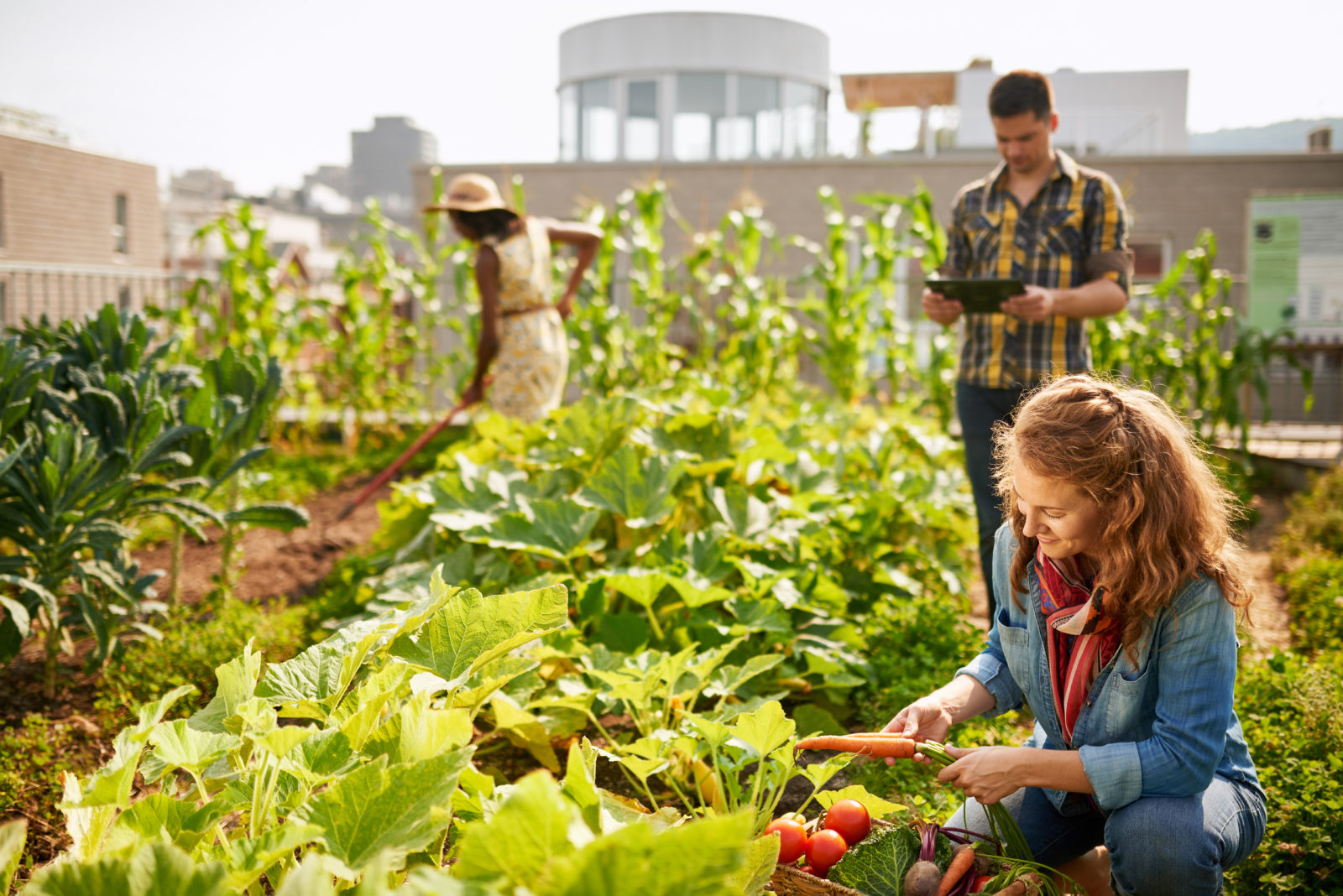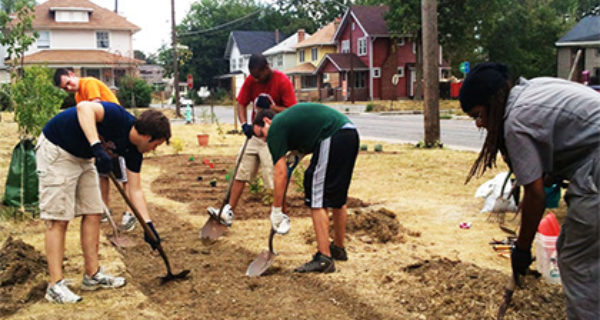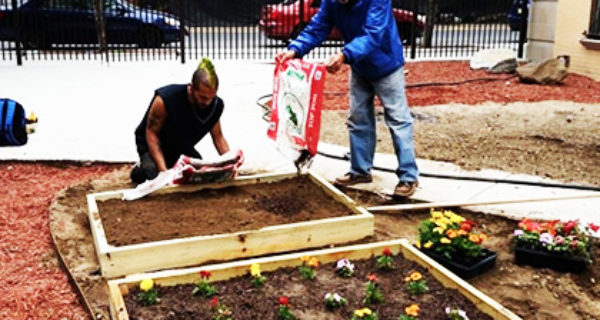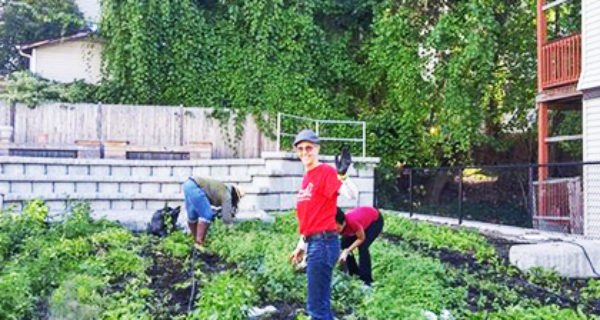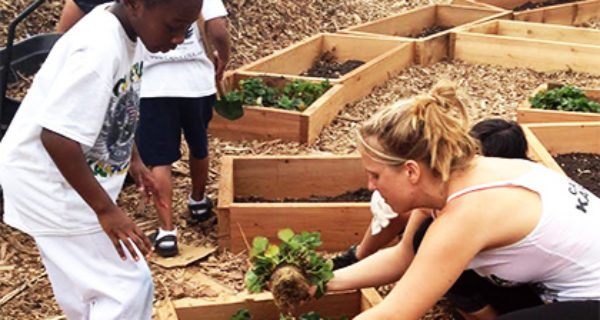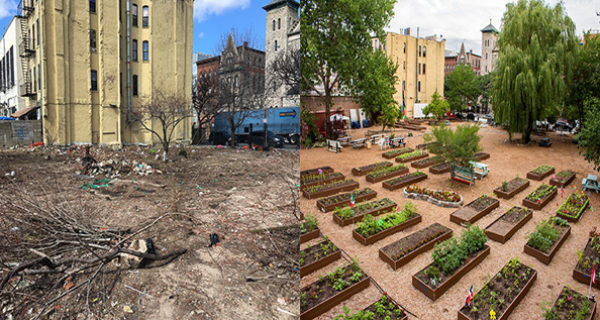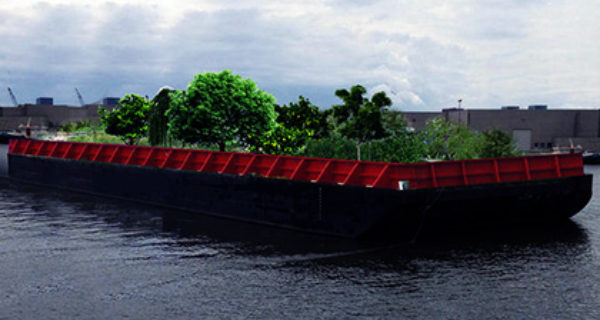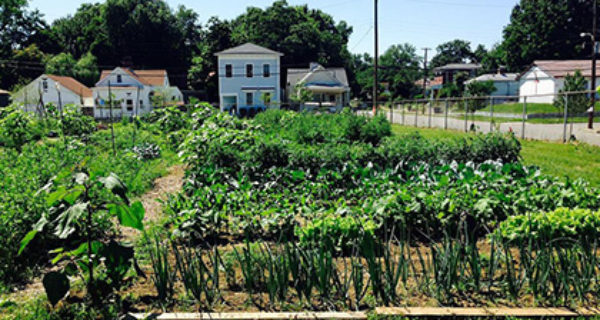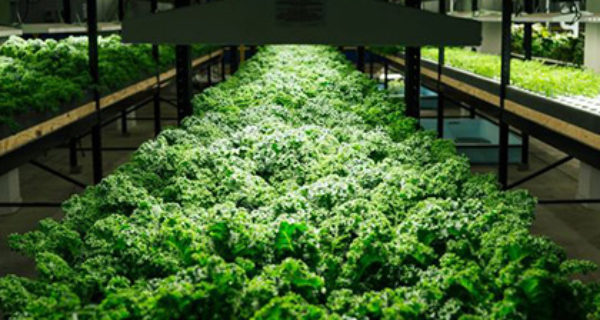No products in the cart.
Municipal Amenities
Growing a Better World: Community Gardens
Community gardens are spaces in urban or suburban areas where people garden together. Some of these spaces are owned by an individual or an organization, and some are started as a group effort by residents of the community. People may each have a plot within a garden for which they care for, or they may collectively share responsibility for one large plot. Community gardens are used to grow fruits, vegetables, herbs and flowers that can be shared by friends and neighbors at the harvest. They can be a wonderful option for people who want to garden but do not have space of their own to do so.
One of the biggest benefits of community gardening is right there in its name – community . In modern society with the rise of technology and the accessibility to anything we need at the drop of a dime, the principal of community is fading with the time and we don’t have as much interaction with neighbors. A garden can help re-build that sense of community and strengthen existing ties. Community gardening is a hands-on project, and even when people are tending their own individual plots in a shared space, they have a great opportunity to mingle with others and share resources and ideas. Participation in community projects like gardens alleviate a sense of isolation we sometimes feel when our communication amongst our neighbors’ declines. Community gardens can act as a community/cultural center with the added bonus that they may bring together a more diverse cross-section of people. These shared gardens create an environment where elderly people and young people or immigrants and native-born citizens find themselves gardening alongside one another and even growing unlikely friendships in the process. From physical gardening practices, to cooking techniques and more, there is so much we have to gain from immersing ourselves in the wisdom and culture of our neighbors. This principal concept of strengthening relationships within the community also helps promote public safety and reduce crime because neighbors in turn become more invested in one another’s safety. The “Journal of Environment and Behavior” published a study that found aggression is lowered in areas where residents have a green space nearby. One increasing trend in urban areas is creating community gardens in vacant lots and other areas that might have attracted crime, dumping of litter, drug use and other undesirable activities. There have been several academic studies that have insisted upon a correlation between the establishment of a community garden and a drop in crime rates.Creating Harmony Amongst Neighbors and Reducing crime
A New York University study showed that community gardens raised property values by up to 9.5 percent within 5 years in the poorest neighborhood that were measured.
Another important benefit of community gardening is physical and environmental health. Gardening can provide excellent physical conditioning and promote healthy eating habits. In one study people were asked to perform gardening tasks while wearing devices that tracked their heart rate, oxygen consumption and calorie burn. When they evaluated the results, they found that all the tasks performed were considered moderate to high intensity physical activity. Based on surveys conducted by the CDC(Center for Disease Control and Prevention) just 12% of Americans eat the minimum daily fruit recommendation, and only 9% eat their minimum daily vegetables. Furthermore, it has been proven that people who garden consume more fruits and vegetables more than the minimum recommendation. An added advantage that comes along with eating the food you grow, is that you absolutely know that it has been cared for with love and harsh pesticides were not used. Some studies suggest that in areas where there are more community gardens accessible, the rate of childhood obesity is lower. It’s important for us to make sure our kids our eating enough fruits and veggies but it is also important to teach our children valuable skills like gardening because they will have them in their tool kit their entire lives. There is an old saying that applies to this concept well – “Catch a boy a fish, and you feed him for a day – Teach a boy to fish, and you feed him for a lifetime.” Studies have shown that children who participate in community gardens tend to do better socially and academically, too. But one of the most vital roles a neighborhood garden can play in a community is providing fresh fruit and vegetables in low-income urban areas that are often referred to as “food deserts.” These are areas where there is little to no affordable fresh produce available. For instance, there was a study conducted in a Los Angeles CA neighborhood that found that fewer than 20 percent of grocery stores had fruit or vegetables for sale that were not rotting or over ripe. When healthy foods are not affordable or accessible many people are forced to eat processed foods with little to no actual dietary value, also known as “junk food”. An effective community garden provides an abundance of healthy food to families who suffer from food insecurity and can encourage people to cook more rather than seeking out processed foods. Many community gardens also provide donations to local food programs. In areas where obtaining fresh food is less of an issue, community gardens address another environmental health concern – the carbon cost of agricultural production and transportation (food miles). The most effective way for most Americans to reduce their diets’ carbon footprint is reducing the money they spend buying ingredients at large grocery stores, eating locally. Eating food from community gardens is about as local as you get and sharing information about this benefit also raises the consciousness on the matter. Another way they can be environmentally beneficial is by creating greater biodiversity and reducing air pollution and soil erosion. They can reduce the effect in a city effected by the “heat island” concept which in short causes hot weather to feel even hotter.Promoting Physical & Environmental Health
Every community and every community garden is different, and the specific benefits of the garden will depend on where the garden is located and the people who garden there. However, it’s clear that community gardens significantly improve the quality of life for those who participate in them. This amazing trend has been popping up in cities all over the United States and we hope to see it grow, which is where you can help. If you are interested in building relationships, improving public safety, reducing crime, getting more physically fit, teaching your child a valuable skill and helping provide one ethical solution to hunger in America consider volunteering your time at a community garden, or even starting new garden in your area. Park Warehouse is dedicated to bringing big ideas to life and making them grow even bigger. We have helped groups around the United States supply their gardens with trash receptacles, benches, planters and bollards. If you are a member of a community garden or are looking to start one, give us a call for the best deal on all on your site furnishing needs. Get Involved
About Park Warehouse
Park Warehouse carries high-quality commercial site furnishings for all types of indoor and outdoor facilities, like parks, office buildings, schools, and playgrounds. Consumers can purchase benches, bike racks, picnic tables, trash receptacles, bleachers, lockers, grills, dog park equipment, message centers, umbrellas, traffic equipment, and more. While the company is based in Boca Raton, we supply commercial outdoor furnishings to customers throughout the nation.
Park Warehouse carries high-quality commercial site furnishings for all types of indoor and outdoor facilities, like parks, office buildings, schools, and playgrounds. Consumers can purchase benches, bike racks, picnic tables, trash receptacles, bleachers, lockers, grills, dog park equipment, message centers, umbrellas, traffic equipment, and more. While the company is based in Boca Raton, we supply commercial outdoor furnishings to customers throughout the nation.

